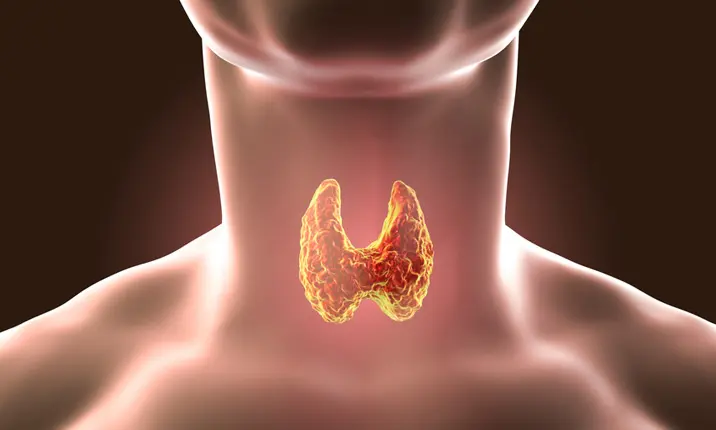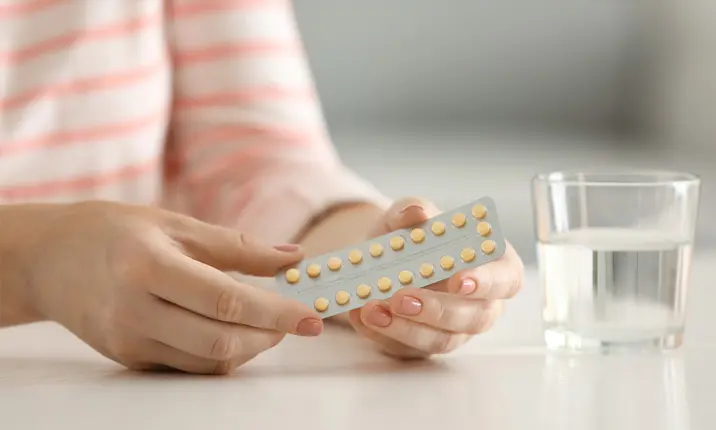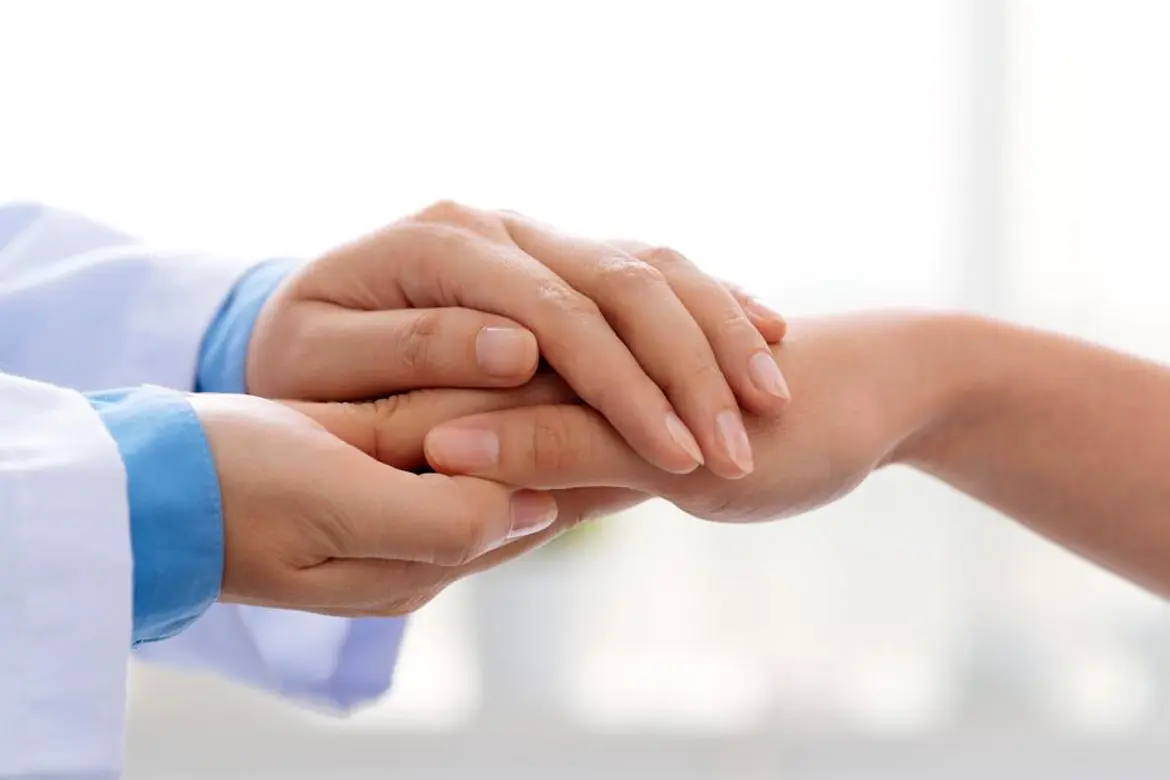-
-
Featured Care Areas


Source: Shutterstock
Hormone Imbalances and How to Address Them
Last updated: Monday, July 4, 2022 | 3 min reading time
Hormones are chemical messengers that control the way your organs and cells function. When they're unbalanced, your entire body can be affected.
What are hormones?
Hormones are produced in your endocrine glands. They travel through your bloodstream and act as messengers to control things like your metabolism, adrenal responses and even your mood. Fluctuation in hormone levels is normal, especially when your body goes through puberty, pregnancy or menopause. However, if your body consistently produces too much or too little of a hormone, it can make you feel 'off' or even very unwell.
Symptoms of a hormonal imbalance
There are many different hormones that affect different parts of your body, therefore, the symptoms of a hormonal imbalance can vary significantly depending on the root cause.
General symptoms include:
- Changes to your skin
- Difficulty concentrating
- Difficulty sleeping
- Digestive issues such as diarrhoea and constipation
- Dry nails and hair
- Fatigue
- Headaches
- Increased hunger or thirst
- Irritability, anxiety, depression and mood swings
- Loss of sex drive
- Sudden weight changes (gain or loss)
- Thinning hair and hair loss
Because men and women have different hormone levels, there are also symptoms that affect one or the other.
Men might notice:
- Changes to body and facial hair
- Erectile dysfunction
- Changes to breast tissue (gynaecomastia)
- Muscle loss
- Infertility
- Excessive sweating
Women might notice:
- Irregular menstrual cycles
- Excessive body or facial hair
- Cystic acne
- Tender breasts
- Vaginal dryness or atrophy
Causes of a hormonal imbalance
Hormone levels often fluctuate in a cyclical manner, which is why women often experience changes in the bodies and moods every month. This is known as premenstrual syndrome (PMS), and it is completely normal.
True hormone imbalances, on the other hand, can be caused by a number of medical conditions, including:
- Overactive or underactive thyroid glands
- Cushing syndrome, which affects cortisol levels (steroid hormone)
- Diabetes
- Tumours
- Medication
- Hormone therapy
- Polycystic ovarian syndrome
- Stress
- Eating disorders
In women, changes to your reproductive system have a direct effect on your hormones. That is why it is common for women to have significant hormonal fluctuations as a result of pregnancy and childbirth. Post-partum, many women take many months or longer to regain a sense of normality and for their body to function as it did pre-pregnancy.
Your diet and your hormones
Much research continues to be done around the role of diet in balancing hormone levels. Studies have found that common hormone-related issues, such as diabetes and polycystic ovarian syndrome (PCOS), can be improved through healthy eating and weight management. There is moderate evidence that adhering to a Mediterranean-style diet including lean meat, fish and proteins, vegetables and fruit, olive oil and other healthy fats, and cutting out processed food, can help to prevent obesity and decrease the incidence of some hormone-related disorders and their symptom severity. In addition, omega-3 fatty acids provide the starting point for the production of hormones that control several essential body functions and these fats can be found in foods such as oily fish and flaxseed oil.
Research suggests that maintaining a healthy weight can help improve hormone-related issues. You can start by:
- Moderating your food choices, where you may consider smaller serving sizes or a daily balance of high versus lower-calorie foods
- Choosing foods prepared with less fat such as soup-based dishes, choosing lean meats and removing visible fat from meats, and choosing plain over flavoured rice or noodles
- Limiting your intake of refined sugar by choosing plain instead of sugary beverages, or asking for less sugar in desserts
- Increasing fibre by choosing wholegrains, aiming for 2 servings of fresh fruit and vegetables daily
In essence, consuming fresh and wholesome foods will always have positive benefits for your body. Do not hesitate to seek out the advice of a dietitian to help you to balance your hormones and improve your overall well-being.
Other treatments for a hormone imbalance
Depending on the cause of the problem, your doctor may offer you:
- Hormone therapy, such as oestrogen or testosterone therapy
- Diabetes medication
- The contraceptive pill
- Prescription creams such as oestrogen
They might also recommend lifestyle changes, such as quitting smoking or drinking, increasing exercise levels for weight loss, and reducing stress. They may also discuss dietary changes tailored to your specific needs. For women post-partum who may be breastfeeding, medication may not be suitable, so making these subtle lifestyle changes is often the best option.
If you suspect you might have a hormone imbalance, make an appointment to see your doctor.
(18 December 2017) Everything You Should Know About Hormonal Imbalance. Retrieved 12 February 2019 from https://www.healthline.com/health/hormonal-imbalance#acne
(19 November 2008) Changing Hormones and Mood Swings: What Can You Do? Retrieved 12 February 2019 from https://www.webmd.com/women/features/escape-hormone-horrors-what-you-can-do#4
(10 November 2017) Do You Have a Hormone Imbalance? Retrieved 12 February 2019 from https://www.webmd.com/women/ss/slideshow-hormone-imbalance
(6 February 2017) Hormone Diet Plan Review. Retrieved 12 February 2019 from https://www.webmd.com/diet/a-z/hormone-diet
(15 May 2017) 12 Natural Ways to Balance Your Hormones. Retrieved 12 February 2019 from https://www.healthline.com/nutrition/balance-hormones
(n.d) Weight loss and diabetes. Retrieved 30 June 2022 from https://www.diabetes.org.uk/guide-to-diabetes/enjoy-food/eating-with-diabetes/whats-your-healthy-weight/lose-weight
(18 March 2019) Mediterranean Diet and Cardiodiabesity: A Systematic Review through Evidence-Based Answers to Key Clinical Questions. Retrieved 30 June 2022 from https://www.ncbi.nlm.nih.gov/pmc/articles/PMC6471908/
(n.d) Endoscopic Weight Loss Program. Retrieved 30 June 2022 from https://www.hopkinsmedicine.org/endoscopic-weight-loss-program/conditions/pcos_polycystic_ovarian_syndrome.html
(n.d) Lose Weight Permanently! Retrieved 30 June 2022 from https://www.healthhub.sg/live-healthy/408/Healthy%20Weight%20Loss
(n.d) The Nutrition Source. Retrieved 30 June 2022 from https://www.hsph.harvard.edu/nutritionsource/what-should-you-eat/fats-and-cholesterol/types-of-fat/omega-3-fats/
(19 November 2008) Changing Hormones and Mood Swings: What Can You Do? Retrieved 12 February 2019 from https://www.webmd.com/women/features/escape-hormone-horrors-what-you-can-do#4
(10 November 2017) Do You Have a Hormone Imbalance? Retrieved 12 February 2019 from https://www.webmd.com/women/ss/slideshow-hormone-imbalance
(6 February 2017) Hormone Diet Plan Review. Retrieved 12 February 2019 from https://www.webmd.com/diet/a-z/hormone-diet
(15 May 2017) 12 Natural Ways to Balance Your Hormones. Retrieved 12 February 2019 from https://www.healthline.com/nutrition/balance-hormones
(n.d) Weight loss and diabetes. Retrieved 30 June 2022 from https://www.diabetes.org.uk/guide-to-diabetes/enjoy-food/eating-with-diabetes/whats-your-healthy-weight/lose-weight
(18 March 2019) Mediterranean Diet and Cardiodiabesity: A Systematic Review through Evidence-Based Answers to Key Clinical Questions. Retrieved 30 June 2022 from https://www.ncbi.nlm.nih.gov/pmc/articles/PMC6471908/
(n.d) Endoscopic Weight Loss Program. Retrieved 30 June 2022 from https://www.hopkinsmedicine.org/endoscopic-weight-loss-program/conditions/pcos_polycystic_ovarian_syndrome.html
(n.d) Lose Weight Permanently! Retrieved 30 June 2022 from https://www.healthhub.sg/live-healthy/408/Healthy%20Weight%20Loss
(n.d) The Nutrition Source. Retrieved 30 June 2022 from https://www.hsph.harvard.edu/nutritionsource/what-should-you-eat/fats-and-cholesterol/types-of-fat/omega-3-fats/











